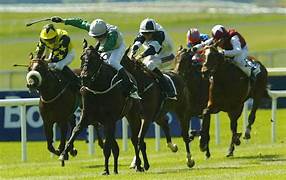Reeves’ Budget Throws Racing into Turmoil – and Hits Trainers Where it Hurts Most
10% Increases for Owners on the cards?
Ed Grimshaw
10/31/20244 min read


If anyone thought Rachel Reeves’ first budget would bring relief to Britain’s beleaguered racing industry, they’ve been given a reality check that stings worse than a swift kick in the paddock. The chancellor’s fiscal plan, designed to raise £40 billion in taxes and “fill” a £22 billion “black hole,” is a direct hit to racing’s lifeblood: the trainers and stable staff who keep the sport alive. Employers in the industry, many of whom are already operating on thin margins, are now facing a double whammy. With the National Insurance rate jumping by 1.2% and minimum wage rising 6.7% to £12.21 an hour (and a jaw-dropping 16.3% for 18-20-year-olds), British racing could be staring down a crisis.
Paul Johnson, chief executive of the National Trainers Federation, did not mince words: “We are facing significant increases in staffing costs,” he warned. In an industry where so many stable employees are at the lower end of the pay scale, these wage hikes mean one thing – training fees are likely to spike. Owners may soon be asked to swallow up to a 10% increase in fees to keep yards running. This, Johnson fears, will stretch trainers and owners alike, with small and medium-sized operations facing the grim prospect of closure.
An Avalanche of Costs for Racing
The NICs hike and minimum wage increases are just the beginning. The budget has also tinkered with business rates, and while details are still being parsed, the racing industry fears it’s yet another financial burden. Johnson pointed out that in rural areas, where training yards are often the cornerstone of local communities, these added costs could be the death knell. “Many training businesses will be unable to sustain these increases,” he said, with rural trainers especially vulnerable to closing up shop. This means fewer yards, fewer opportunities, and less access for budding trainers and jockeys in the countryside.
David Armstrong, CEO of the Racecourse Association, tried to look on the bright side, saying there were “no nasty surprises” in the budget, but conceded that the “combination of NI changes, increased minimum wage, and potential increases in business rates” could be a “tough pill to swallow.” A pill so tough, in fact, that it might leave racecourses and trainers choking on the very lifeblood of the sport.
Will Owners Stomach a 10% Fee Hike?
For owners, the budget signals that training fees may jump by up to 10% to absorb these extra costs. For some, that might seem like a minor increase; for others, it could be the last straw. With wages making up a large share of a trainer’s operating expenses, the burden is inevitably going to fall on owners to keep stables solvent. British racing could soon face a scenario where only the wealthiest owners can afford to keep horses in training, while smaller syndicates and grassroots owners are priced out entirely.
And then there’s the bookmakers – the one group that emerged unscathed from this budget. Rachel Reeves decided to leave gambling duties untouched, a move that saw share prices in Flutter Entertainment, Entain, and other major operators rise. The message is clear: the racing industry may have to tighten its belt, but the bookmakers can carry on popping the champagne. Johnson grudgingly admitted that it’s an “upside” the industry escaped a crippling betting tax, but there’s a sense that the government has overlooked the impact of this budget on racing’s ground-level economy, shifting its focus to big business while rural communities bear the brunt.
Where’s the BHA? Racing Left to Fend for Itself
The British Horseracing Authority (BHA), along with National Trainers Federation and Racecourse Association, are scrambling to assess the full implications of this budget. Greg Swift, BHA director of communications, highlighted the potential for “significant damage to Britain’s rural and racing communities.” Swift called on the government to urgently reform the horserace betting levy to help offset the costs – a familiar plea from an industry that has been left clutching straws while bookmakers enjoy tax immunity. But this levy reform has been ignored time and time again, leaving trainers, jockeys, and stable hands to pick up the tab for an industry that the government appears to treat as an afterthought.
With racing’s governing bodies stuck in reactive mode, it’s fair to question the BHA’s role in pushing for practical support. Instead of just holding crisis meetings, perhaps it’s time for the BHA to lobby more forcefully for policies that don’t push small training operations to the brink.
What’s Next? Racing’s Path Ahead Looks Grim
In an industry already plagued by affordability checks, falling prize money, and declining interest, Reeves’ budget piles on fresh uncertainty. British racing, already on a precarious financial footing, now faces an unprecedented wave of rising costs. Rural stables, grassroots trainers, and the employees who care for the horses stand at the greatest risk. For those in racing’s financial trenches, this budget represents not just a setback, but a body blow.
The prospect of a 10% fee hike for owners is just one symptom of the larger issue. Unless the government acknowledges the unique structure of racing’s economy – which relies heavily on small operations, part-time workers, and rural communities – it risks dismantling the industry piece by piece. Racing needs more than just levy reform; it needs genuine engagement from policymakers who understand its nuances. Otherwise, British racing’s lifeblood may end up being the very thing the budget bleeds dry.
Reeves may think she’s “filling the black hole” in Britain’s finances, but for British racing, it feels more like she’s dug it deeper.
